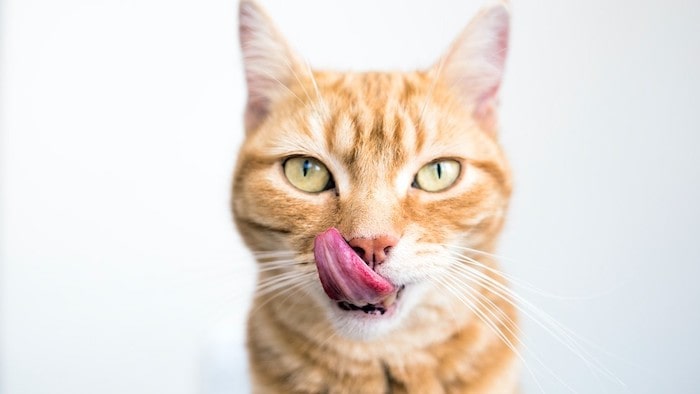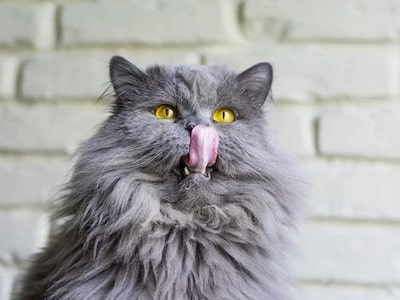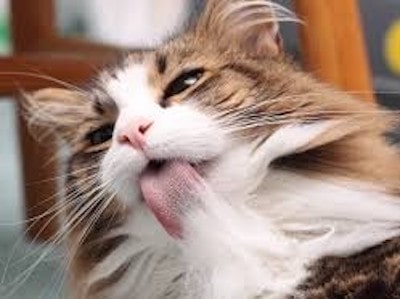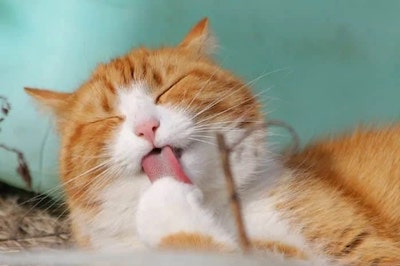Cats are fascinating creatures known for their independence, agility, and their meticulous grooming habits. As they meticulously groom themselves, you may have noticed something rather peculiar your furry companion nibbling on their own hair.
It’s a behavior that can leave pet owners puzzled and wondering why cats engage in such an unusual activity. In this article, we delve into the intriguing world of feline behavior to uncover the reasons behind this seemingly odd habit: why do cats eat their hair?
Join us as we explore the scientific explanations and delve into the fascinating insights into our feline friends’ grooming rituals. Get ready to unlock the secrets behind this puzzling behavior that has captivated cat lovers around the world.
What is Hair Eating and Why Do Cats Do It?
Hair eating, also known as trichophagia, is a condition where cats ingest their own hair or fur. This can happen accidentally, as cats groom themselves with their tongues, which have tiny barbs that catch loose hair. Some of this hair may end up in their stomachs, forming hairballs that they eventually vomit or pass through their stools.

However, some cats may eat their hair deliberately and excessively, which can cause serious health issues. Hair eating can lead to intestinal blockages, malnutrition, dental problems, and infections. Hair eating can also indicate that your cat is suffering from stress, anxiety, boredom, or a medical condition that needs to be addressed.
Common Causes of Hair Eating in Cats
There are many possible reasons why cats may eat their hair. Some of the most common ones are:
- Overgrooming: Cats may overgroom themselves due to stress, anxiety, boredom, or skin irritation. Overgrooming can result in hair loss, bald patches, skin infections, and hair eating. Cats may overgroom themselves to cope with changes in their environment, such as moving to a new home, introducing a new pet or family member, or losing a companion.
- Stress and Anxiety: Cats may eat their hair as a way of soothing themselves when they feel stressed or anxious. Stress and anxiety can be caused by various factors, such as loud noises, unfamiliar people or animals, lack of attention, or separation from their owners. Stress and anxiety can also affect your cat’s appetite and digestion, making them more prone to hair eating.
- Pica: Pica is a disorder where cats eat non-food items, such as hair, wool, plastic, or paper. Pica can be caused by nutritional deficiencies, genetic factors, medical conditions, or behavioral issues. Pica can be dangerous for your cat’s health, as it can cause choking, intestinal obstruction, poisoning, or infection.

- Fleas: Fleas are tiny parasites that feed on your cat’s blood and cause itching, irritation, and allergic reactions. If your cat has fleas, they may lick and bite their fur excessively to try to get rid of them. This can result in hair loss and hair eating. Fleas can also transmit diseases and worms to your cat.
- Skin Injuries: Skin injuries, such as cuts, scrapes, burns, or bites, can cause pain and discomfort for your cat. Your cat may lick the affected area to clean it and help it heal. However, excessive licking can cause more damage to the skin and lead to hair eating. Skin injuries can also get infected if not treated properly.
- Boredom: Cats are intelligent and curious animals that need mental and physical stimulation. If your cat is bored or lacks enrichment in their environment, they may resort to eating their hair as a way of occupying themselves and satisfying their natural instincts. Boredom can also lead to stress and anxiety, which can trigger hair eating as well.
How to Tell if Your Cat is Eating Their Hair
Some signs and symptoms that your cat may be eating their hair are:

- Hair loss or bald patches on their coat
- Hairballs or hair in their vomit or stools
- Choking or gagging on hair
- Weight loss or poor appetite
- Lethargy or depression
- Excessive licking or biting of their fur
- Skin irritation or infection
If you notice any of these signs in your cat, you should consult your veterinarian for a proper diagnosis and treatment. Your vet can rule out any underlying medical conditions that may be causing your cat to eat their hair, such as parasites, allergies, hormonal imbalances, or dental problems. Your vet can also prescribe medication or supplements to help your cat with their hair eating problem.
How to Prevent and Treat Hair Eating in Cats
There are several things you can do to prevent and treat hair eating in cats, depending on the cause and severity of the problem. Some of the most effective methods are:
1) Brushing: Brushing your cat regularly can help remove any loose hair from their coat and reduce the amount of hair they ingest. Brushing can also provide a bonding experience for you and your cat, and help them relax and feel comfortable.
2) Flea treatment: If your cat has fleas, you should treat them with a flea medication recommended by your vet. You should also clean and disinfect your home and yard to get rid of any flea eggs or larvae that may be hiding there.
3) Wound care: If your cat has a skin injury, you should take them to the vet for a proper wound care. Your vet can prescribe medication or ointment to help the wound heal and prevent infection. You should also keep the wound clean and dry, and prevent your cat from licking or biting it.

4) Stress relief: If your cat is stressed or anxious, you should try to identify and eliminate the source of their stress. You can also provide them with a calm and relaxing environment, with plenty of hiding places and vertical space. You can also try giving them toys and treats that help reduce their anxiety, such as calming collars, pheromone diffusers, or catnip.
5) Environmental enrichment: If your cat is bored, you should provide them with more mental and physical stimulation. You can offer them a variety of toys that mimic natural prey, such as mice or birds, and interactive toys that require them to work for their reward, such as puzzle feeders or treat dispensers.
You can also play with your cat every day, using a wand toy, a laser pointer, or a feather teaser. You can also provide them with a variety of textures and surfaces to explore, such as soft blankets, rough surfaces like sisal, or even a small indoor garden with cat-friendly plants like catnip or wheatgrass.
You can also provide them with a view of the outdoors, by setting up a window perch, installing a bird feeder outside your window, or even creating a screened-in porch for your cat to enjoy the fresh air.
FAQs
Is it normal for cats to eat their hair?
Yes, it is relatively normal for cats to eat their hair during grooming. Cats have barbs on their tongues that aid in removing loose and dead hairs from their fur. In the process, they may inadvertently swallow some of the hair. However, excessive hair consumption or compulsive grooming may indicate an underlying health issue and should be evaluated by a veterinarian.
Can eating hair cause health problems in cats?
In moderation, eating hair during grooming is unlikely to cause significant health problems for cats. However, excessive hair ingestion can lead to the formation of hairballs, which may cause digestive issues, blockages, or discomfort. It is important to monitor your cat’s grooming habits and seek veterinary advice if you notice any concerning symptoms or changes in behavior.
When should I be concerned about my cat’s hair eating habits?
If you notice a sudden increase in your cat’s hair consumption, excessive grooming, signs of distress, vomiting without hairball elimination, or a significant decrease in appetite, it is important to consult with a veterinarian. These may be indicators of underlying health issues such as skin conditions, allergies, parasites, anxiety, or other medical conditions that require professional attention.
Are there any home remedies to help with hairballs in cats?
While there are various home remedies suggested by some pet owners, it is crucial to consult with a veterinarian before trying any remedies. Some commonly recommended approaches include providing specialized hairball control diets, administering hairball lubricants, or adding fiber supplements to your cat’s diet to aid in the passage of hairballs. However, it is essential to follow professional advice to ensure the safety and well-being of your feline companion.
Conclusion
Understanding why cats eat their hair provides valuable insights into their grooming behaviors and overall well-being. While it may initially seem like an odd habit, hair consumption during grooming is a natural instinct for cats.
It serves as a means for them to maintain their sleek coats and eliminate loose hairs. However, excessive hair ingestion or compulsive grooming can indicate underlying health issues that require attention.
As responsible cat owners, it is important to monitor our feline friends’ grooming habits and be aware of any changes or signs of discomfort.
Regular brushing, providing a balanced diet, and consulting with a veterinarian are key in preventing excessive hair consumption and potential complications such as hairballs.
